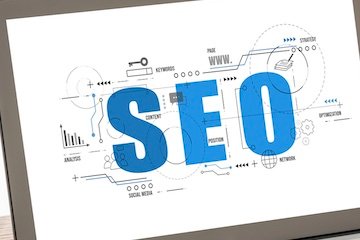I quickly discovered last year how ChatGPT can improve search engine optimization. Google now says Gemini, its own AI tool, is more powerful.
So I tested Google’s claim, prompting Gemini to perform the same SEO tasks. I used the latest iteration of each platform: ChatGPT4 and Gemini Advanced.
Here are my findings.
On-page optimization
My initial message:
My target keyword is “audio manuals”. This is my article [URL]. Is it well optimized for this keyword?
ChatGPT listed what it considered:
I’ll check:
- The presence and use of “audio manuals” in critical areas (title, headers, etc.).
- Overall content structure and readability.
- Relevant matchmaking practices.
- Technical aspects such as mobile responsiveness and loading speed.
It then produced generic recommendations, indicating that it had not analyzed the page. Here is what he suggests for internal links (I put the text in bold):
Make sure some internal links to other relevant content on your site are included if it is not done yet.
Gemini was even less helpful, stating:
I was unable to determine from the article itself whether it is optimized for the keyword. However, I can search the web and see if there are any SEO best practices you can follow to improve your article.
I then pasted the entire article into the Gemini prompt. It made no difference. Gemini failed to analyze content and instead provided routine SEO advice.
Analysis of content usefulness
My next prompt:
Is my article helpful to someone looking for audio manuals? How can I make it more useful?
Both answers were worth it. ChatGPT provided ideas missing from my article, especially “Accessibility Features”.
- Develop content: Include detailed reviews of various platforms offering audio textbooks, comparing features such as user experience, title availability, and subscription costs where applicable.
- User Guides: Provide step-by-step guides on how to access or download these audiobooks from the mentioned sites.
- Accessibility features: Discuss the accessibility options available for users who are visually impaired or dyslexic.
Gemini came up with his own good idea:
The article could be more helpful by including a table comparing different options, such as cost, textbook selection, and ease of use.
Interestingly, this time Gemini accessed my page. Although I’m now wondering if Gemini is blocked from doing direct SEO.

Gemini appeared to access the page while scanning the content.
Keyword research
My next prompt:
What additional keywords should I optimize this article for? List related keywords, synonyms, related concepts, etc. Explain why each keyword is a good idea for this context. Make a chart of it.
Both platforms provided helpful keywords and listed “free audiobooks” as their first suggestion. I have reproduced both tables for this article.
| Keyword (ChatGPT) | Explanation (ChatGPT) |
|---|---|
| Free audiobooks | Broadens appeal to users looking for free audio content, not limited to textbooks. |
| Educational audiobooks | Targets users specifically looking for audiobooks with educational content. |
| Audio Learning Resources | Captures searches related to audio formats used for educational purposes. |
| Audiobook apps for students | Reaches a demographic specifically using mobile apps for educational audiobooks. |
| Downloadable manuals | Appeals to users looking for manuals in different formats, including audio. |
| Electronic manuals | Exploits the market for electronic versions of textbooks, closely linked to audio versions. |
| Alternatives to textbooks | Attracts searches from users looking for different forms of learning materials beyond traditional books. |
| Study Aid | Connects with users looking for helpful educational tools, including audio summaries. |
| Audiobook reviews | Caters to users who choose between different audiobook services based on reviews. |
| Accessible learning tools | Focuses on inclusiveness, attracting users who need accessible learning formats, such as audio. |
| Keyword (Gemini) | Reason for inclusion (Gemini) |
|---|---|
| free audio books | Many users looking for audio textbooks may be cost-conscious and look for free options. |
| educational audio books | This is a broader term for users looking for audiobooks for learning purposes, not just textbooks. |
| learn audiobooks | Similar to “educational audiobooks” but emphasizes the learning aspect. |
| audiobook manuals | This rephrases your target keyword “audio manuals” but can be used in searches. |
| TTS Audiobooks | This targets users who may not be familiar with the term “text-to-speech” but are interested in this method. |
| read textbooks aloud | This is a more natural way for some users to describe what they are looking for. |
| ebooks for dyslexic students | This is a related concept that targets a specific audience (dyslexic students) who could benefit from audio textbooks. |
| audio books for the visually impaired | Similar to “ebooks for dyslexic students” but targets visually impaired users. |
| alternative formats for textbooks | This is a broader term for users looking for any alternative format to traditional textbooks, including audio. |

